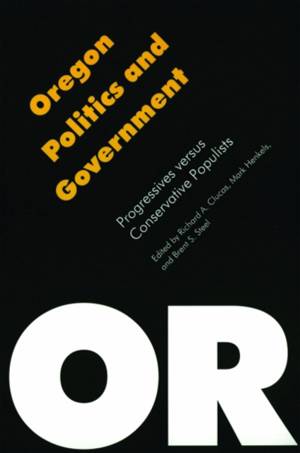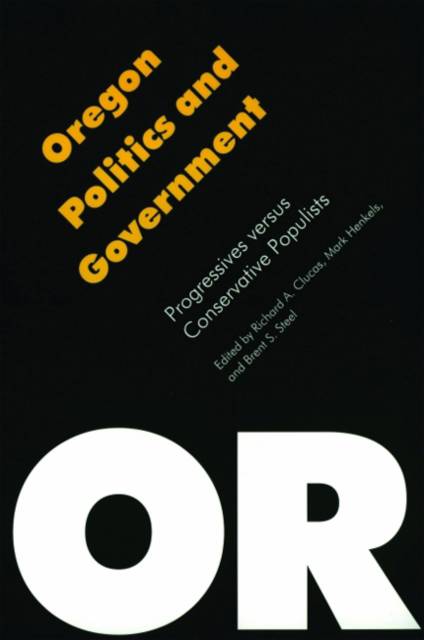
- Afhalen na 1 uur in een winkel met voorraad
- Gratis thuislevering in België vanaf € 30
- Ruim aanbod met 7 miljoen producten
- Afhalen na 1 uur in een winkel met voorraad
- Gratis thuislevering in België vanaf € 30
- Ruim aanbod met 7 miljoen producten
Zoeken
Oregon Politics and Government
Progressives Versus Conservative Populists
€ 48,95
+ 97 punten
Omschrijving
The political culture of Oregon has long had a reputation for innovative policy, maverick politicians, and independent political thought, but instead of using the term "progressive" to describe the state's political leanings, the editors of Oregon Politics and Government believe a more accurate descriptor would be "schizophrenic." Oregon Politics and Government provides not only an overview of the state's politics and government; it also explains how the divide between progressives and conservative populists defines Oregon politics today. Early in the state's history, reformers championed many causes: the initiative and referendum process for setting public policy, the recall of public officials, the direct election of U.S. senators, and women's suffrage. Since then, the state has asserted control over beaches, imposed strict land-use laws, created an innovative regional government, introduced voting through the mail, allowed for physician-assisted suicide, and experimented with universal healthcare. Despite this list of accomplishments, however, Oregon is divided between two competing visions: one that is tied to progressive politics and another that is committed to conservative populism. While the progressive side supports a strong and active government, the conservative populist side seeks a smaller government, lower taxes, fewer restrictions on private property, and protection for traditional social values. The struggle between these two forces drives Oregon politics and policies today.
Specificaties
Betrokkenen
- Uitgeverij:
Inhoud
- Aantal bladzijden:
- 348
- Taal:
- Engels
- Reeks:
Eigenschappen
- Productcode (EAN):
- 9780803264366
- Verschijningsdatum:
- 1/07/2005
- Uitvoering:
- Paperback
- Formaat:
- Trade paperback (VS)
- Afmetingen:
- 155 mm x 227 mm
- Gewicht:
- 485 g

Alleen bij Standaard Boekhandel
+ 97 punten op je klantenkaart van Standaard Boekhandel
Beoordelingen
We publiceren alleen reviews die voldoen aan de voorwaarden voor reviews. Bekijk onze voorwaarden voor reviews.






